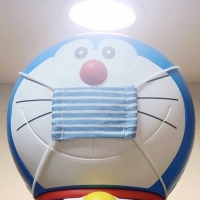New on LowEndTalk? Please Register and read our Community Rules.
All new Registrations are manually reviewed and approved, so a short delay after registration may occur before your account becomes active.
All new Registrations are manually reviewed and approved, so a short delay after registration may occur before your account becomes active.

















Comments
There is, as the name suggests, zero protection for data in RAID0, but indeed best access performance.
For data protection, Raid1 > no Raid > Raid 0.
For speed, it's the reverse order.
It's always worth spending some time with
fioto find what works best with your hardware. Raid 1 read performance will be basically as good as raid 0 on any good raid implementation. Write will be same as a single diskThere are 100s of threads available on same topic. So there's no need to open another..
Anyway Raid 1 provide more protection than Raid 0
So if you have valuable data then go with Raid 1
Here's the calculator you can use
http://www.raid-calculator.com/
You can never go wrong with YOLORAID - https://www.yoloraid.com/
RAID0 and JBOD give essentially negative protection, compared to the 2+ drives configured with their own independent filesystems.